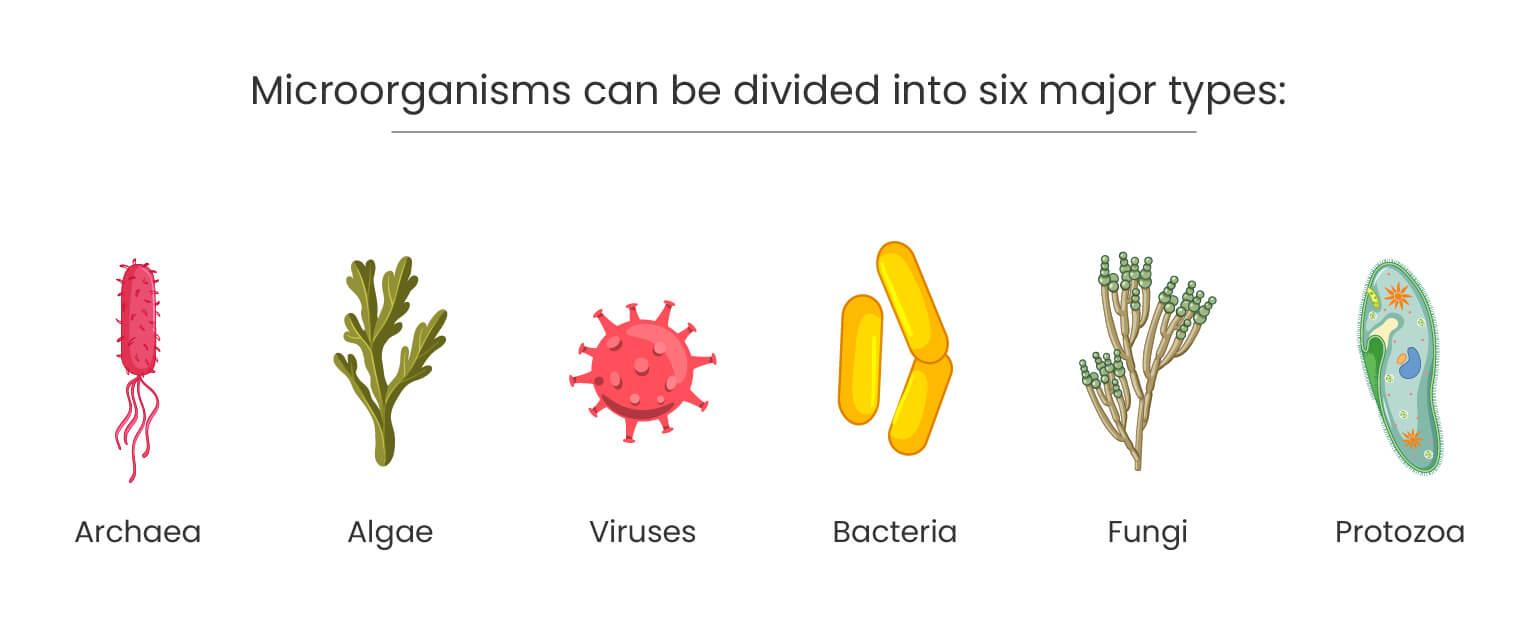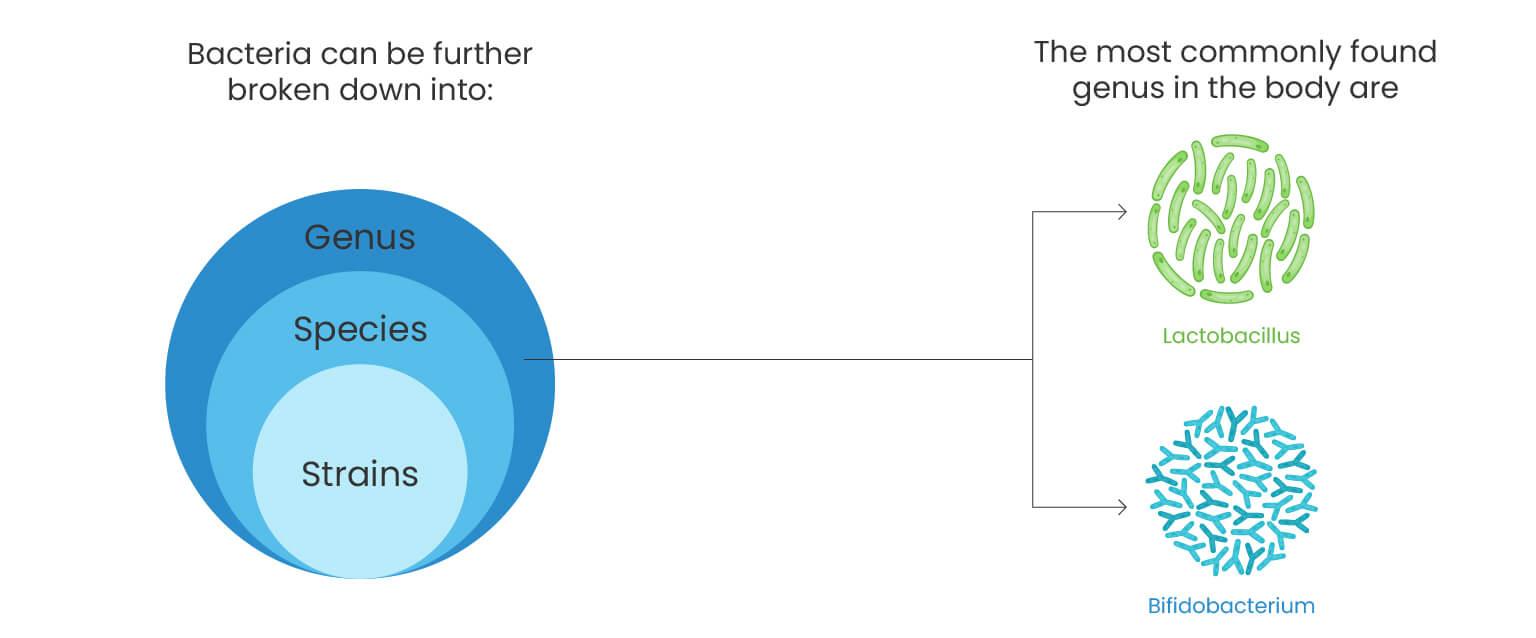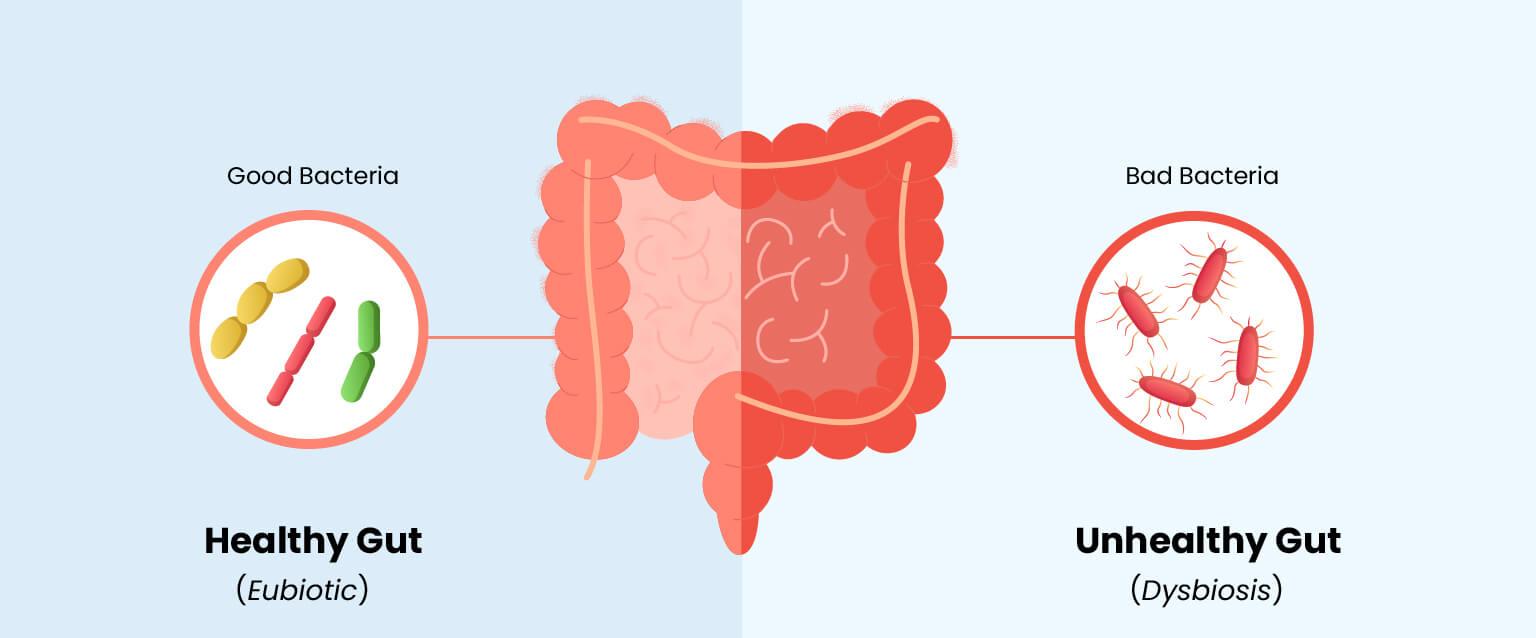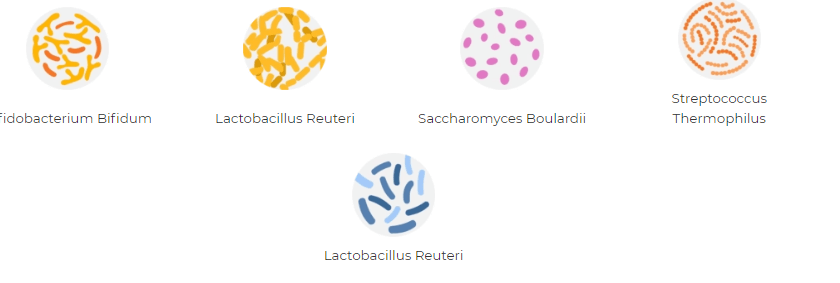Let's understand the world of Microorganisms
Microorganisms, also known as microbes, are minuscule living entities that can exist either as single cells, multicellular organisms, or in clustered formations. These tiny life forms are ubiquitous in our surroundings, with bacteria comprising the predominant group of microorganisms that inhabit both the exterior and interior of our bodies.

It might surprise you to learn that the number of bacteria residing in your body surpasses the count of your human cells. These bacteria can be further categorized into various levels, including genus, species, and strains. While the first two categories are quite common, bacterial strains are unique and distinct. Among the myriad of bacteria inhabiting the human body, the most prevalent ones belong to the Lactobacillus and Bifidobacterium families.

It might surprise you to learn that the number of bacteria residing in your body surpasses the count of your human cells. These bacteria can be further categorized into various levels, including genus, species, and strains. While the first two categories are quite common, bacterial strains are unique and distinct. Among the myriad of bacteria inhabiting the human body, the most prevalent ones belong to the Lactobacillus and Bifidobacterium families.
Gut And The Microbiome
Before we explore the realm of probiotics, it's important to gain insight into the role bacteria plays within the human body. Our bodies harbor a diverse community of bacteria, encompassing both beneficial and harmful strains, commonly known as commensal bacteria.
The beneficial bacteria serve critical functions, including the breakdown of indigestible compounds, safeguarding the body against invading pathogens, and contributing to the development of the immune system. However, it's essential to note that achieving a state of 100% beneficial bacteria within the body is practically unattainable. The majority of our microbial inhabitants, over 90% of them, and a substantial portion of our immune system, approximately 70%, reside in our gastrointestinal tract, making the gut the primary arena for immune education.
As long as the population of beneficial bacteria significantly outweighs that of harmful bacteria, the immune system can coexist with the harmful ones, maintaining a state referred to as "Eubiotic." In this Eubiotic condition, beneficial bacteria constitute 85% or more of the bacterial population. Nonetheless, factors such as excessive antibiotic usage, exposure to toxic substances in the environment, or unhealthy lifestyle choices can lead to the depletion of beneficial bacteria, particularly in the gut. This imbalance, known as dysbiosis, subsequently results in a compromised immune system.
As long as the population of beneficial bacteria significantly outweighs that of harmful bacteria, the immune system can coexist with the harmful ones, maintaining a state referred to as "Eubiotic." In this Eubiotic condition, beneficial bacteria constitute 85% or more of the bacterial population. Nonetheless, factors such as excessive antibiotic usage, exposure to toxic substances in the environment, or unhealthy lifestyle choices can lead to the depletion of beneficial bacteria, particularly in the gut. This imbalance, known as dysbiosis, subsequently results in a compromised immune system.

When the body is under attack by pathogens, it can lead to inflammation, either localized or systemic, which presents as a disease. Regrettably, many traditional treatment approaches mainly focus on symptom management. An alternative approach involves pinpointing the area of bacterial imbalance within the body and administering the appropriate probiotics, which are beneficial bacteria. These probiotics target the problematic area, inundate it, and restore the microbial equilibrium.
In place of this, the specific site of microbial dysbiosis can be identified, and an individual can receive a disease-specific probiotic to reinstate the microbial balance, addressing the fundamental cause of the disease condition.
Over the past decade, extensive global scientific research in the realm of probiotics has taken place. Subsequent clinical trials have conclusively demonstrated that probiotics have achieved success in treating conditions where many conventional treatments have fallen short. We are now witnessing the dawn of the probiotic era!
Probiotics and its Benefits
Healthcare professionals are increasingly endorsing probiotics for a wide range of advantages, encompassing immune enhancement, gastrointestinal well-being, allergy mitigation, urogenital health, skincare, and oral health.
Continual research is underway, particularly in the fields of weight management, diabetes management, autism, and their use as adjuncts in chemotherapy. One key finding in probiotic research is that these beneficial microorganisms typically do not enter the bloodstream, rendering them generally safe for individuals of all age groups, including infants, expectant mothers, and the elderly.
Continual research is underway, particularly in the fields of weight management, diabetes management, autism, and their use as adjuncts in chemotherapy. One key finding in probiotic research is that these beneficial microorganisms typically do not enter the bloodstream, rendering them generally safe for individuals of all age groups, including infants, expectant mothers, and the elderly.

Down To The Strain
Bacteria can be categorized into three distinct levels: Genus, Species, and Strain. While Genus and Species are more general classifications, Strains are distinctive and unique. To achieve the desired therapeutic effect, it is crucial for probiotic formulations to contain the precise strains capable of targeting the specific site and addressing the particular disease condition. This, in turn, bestows health benefits upon the host.
Advenza specializes in the development of probiotics that are not only multi-species but also strain-specific, site-specific, and disease-specific, all supported by rigorous clinical research.
Advenza specializes in the development of probiotics that are not only multi-species but also strain-specific, site-specific, and disease-specific, all supported by rigorous clinical research.
The strains that we offer in our probiotic range:







The Role of Prebiotics
Prebiotics are soluble, non digestible fibre which serves as the food for gut microbes and in turn ensures good colon health. Prebiotics and probiotics work together to ensure there is a healthy colony of bacteria in the body. Recent research has also shown that prebiotics can kick start the growth of the native gut bacteria and restore intestinal healthAdvenza specializes in the development of probiotics that are not only multi-species but also strain-specific, site-specific, and disease-specific, all supported by rigorous clinical research.
Probiotics and Its Applications
Research done around the world have identified the following conditions where probiotics have been found to be useful. Consult a doctor for more details.


